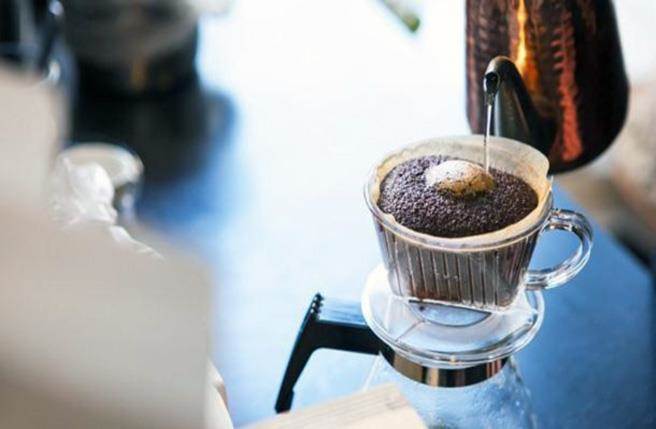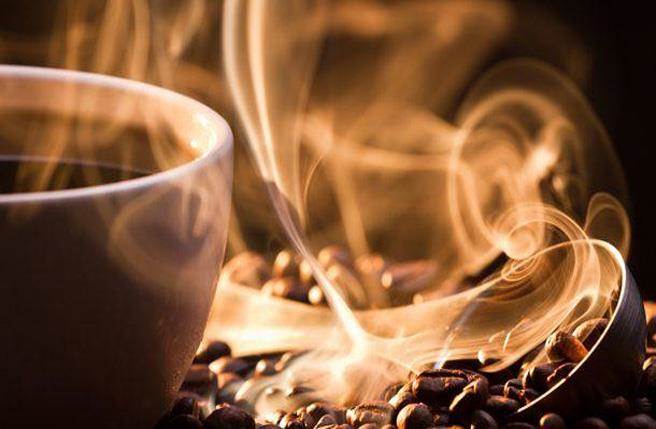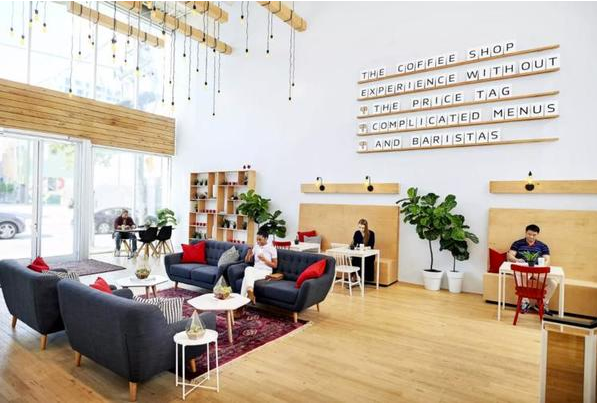The most suitable water for brewing coffee is it!

For professional baristas, please follow the coffee workshop (Wechat official account cafe_style)
Coffee drinkers are very particular about beans, utensils, techniques and temperature, but in fact, there is another link that is also very important, that is, water quality.
It may be thought that in order to make good coffee, you need to use good water, and filtering water will be a better choice. But scientific research has overturned this claim. According to a study published in the Journal of Agricultural and Food Chemistry (Journal of Agricultural and Food Chemistry), the proportion of minerals in "tap water" can significantly improve the taste of coffee.
As mentioned earlier, water quality is divided into hard water and soft water; mineral water and deep ocean water are hard water because they are rich in minerals, while distilled water and filtered water usually tend to be soft water because they filter out or exchange minerals. Of course, the water quality will vary from place to place. Some areas are soft and some areas are hard.
An experiment by Christopher H. Hendon, a doctoral student in the Department of theoretical and Computational Chemistry at the University of Bath in the UK, found that coffee brewed with different hardness of water has a very different flavor. (he cooperated with nearby coffee shops, asked them to help make coffee, and then used the computer to run out the data.)
"especially for those with high magnesium content in water, the taste and aroma of the brewed coffee are different," Handen explained. Roasted coffee beans are already rich in natural chemicals, such as citric acid, lactic acid, eugenol (eugenol), and thousands of aromas. Different degrees of roasting will affect the flavor of beans. At the same time, the water itself has different mineral compositions. Not only do you drink H 2O, but the concentrations of magnesium, calcium and sodium in the water will vary in different areas and at different times.

Compared with other minerals, "magnesium" has a higher adhesion and is particularly easy to absorb chemicals in coffee beans, thus enhancing some aroma or taste of coffee beans. Suppose that the water with higher magnesium content absorbs more eugenol from coffee beans, and this ingredient has a woody flavor, then the woody aroma of this cup of coffee will be stronger.
In addition, Handen also found that if you use water with a higher concentration of sodium bicarbonate to make coffee, it will taste bitter.
On the other hand, making coffee in soft water is less of a "flavor-enhancing" chemical reaction. Handen mentioned that soft water usually contains more sodium, which is not a very "clingy" mineral and does not have a special effect on the flavor of coffee.
Of course, this conclusion is not who is good or bad, the key is the mineral composition of tap water and the role between tap water and coffee beans.
However, Handen believes that making coffee is no longer just an art, allowing individuals to play freely, this is really a science.
Important Notice :
前街咖啡 FrontStreet Coffee has moved to new addredd:
FrontStreet Coffee Address: 315,Donghua East Road,GuangZhou
Tel:020 38364473
- Prev

Please bring a bag of Nestle instant coffee and experience their Canadian pop-up coffee shop.
Professional baristas follow the Coffee Workshop (official Wechat account cafe_style) We recently reported that food companies like Ferrero and Kellogg have opened restaurants to create topics and heat, some of which are resident stores. Now Nestl é is also following the hope of using experiential marketing to promote their sweet cream instant coffee, which is in the King of Toronto, Canada.
- Next

Coffee: When will our customer base surge?
Professional barista communication, please pay attention to coffee workshop (Weixin Official Accounts cafe_style ) The following is my summary guess. And I think it's not just coffee. In 2000, the number of college entrance examinations was 3.75 million, and since then the number has increased by 500,000 or 600,000 every year. In 2008, the year of my college entrance examination, the number of people taking the national college entrance examination was the highest ever, reaching 1050.
Related
- What brand of black coffee is the most authentic and delicious? what are the characteristics of the flavor of the authentic Rose Summer Black Coffee?
- Introduction to the principle and characteristics of the correct use of mocha pot A detailed course of mocha pot brewing coffee is described in five steps.
- Which is better, decaf or regular coffee? how is decaf made?
- How much is a bag of four cat coffee?
- How about four Cat Coffee or Nestle Coffee? why is it a cheap scam?
- Which is better, Yunnan four Cats Coffee or Nestle Coffee? How about cat coffee? is it a fake scam? why is it so cheap?
- How about Cat Coffee? what grade is a hoax? which instant coffee tastes better, four Cat Coffee, Nestle Coffee or G7 coffee?
- Process flow chart of coffee making-Starbucks coffee making process what coffee tastes good at Starbucks
- The top ten best coffee beans in the world Rose summer coffee or Tanzanian coffee tastes good
- Yunnan four cat coffee is good to drink?_four cat coffee is a big brand? four cat blue mountain coffee is fake?

